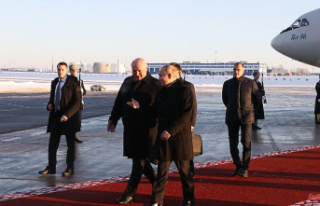An EU-wide price cap is intended to regulate gas trading for large customers. The federal government reports concerns and fears distribution fights. In the end, the energy ministers of the EU states outvoted Germany.
In the European Union, wholesale gas prices are to be capped under certain circumstances. The energy ministers of the EU states agreed on the possibility of such a drastic market intervention, as a spokeswoman for the EU Council of Ministers announced. The cap can be triggered from a price of 180 euros per megawatt hour, as stated in the decision. The mechanism can be implemented from February 15.
The price cap affects major customers who trade on the TTF gas exchange - not end consumers, as is the case with the federal government's gas price brake. Consumer prices are indirectly influenced by wholesale prices. Most recently, the gas price on the TTF on Monday was around 110 euros per megawatt hour. In August, the price on the TTF reached a high of over 340 euros per megawatt hour.
The fear of Germany, the Netherlands and Austria remained until the very end that liquefied natural gas could no longer come to Europe if there was a cap. In the event of a shortage, struggles over distribution would break out among the states, which would put the EU to a crucial test.
In order to implement the price cap with a qualified majority, at least 15 of the 27 EU countries, which together make up at least 65 percent of the total population of the EU, had to agree. Previously, an attempt was made to find an amicable agreement on the subject.












